If you like to be prepared, you’ve come to the right place. Let’s look at a few simple ways you can keep bears out of your backyard!
The rising population of bears has come across as good news for the wildlife ecosystem. However, this news has its fair share of drawbacks. With the increasing ratio of bears, there has been a surge in their interaction with humans. While bears prefer inhabiting dense forest areas with no humans around, chances are people living nearby forests might occasionally encounter a bear visiting their backyard.
These giant creatures can trample your backyard and sometimes even harm your family or pets. So, it will be best to research ways to reduce your chances of encountering these dangerous animals. Keeping bears away from your backyard is safer for you and them!
So, let’s explore a few ways to keep bears out of your backyard.
1. Don’t Leave Trash Cans Unattended
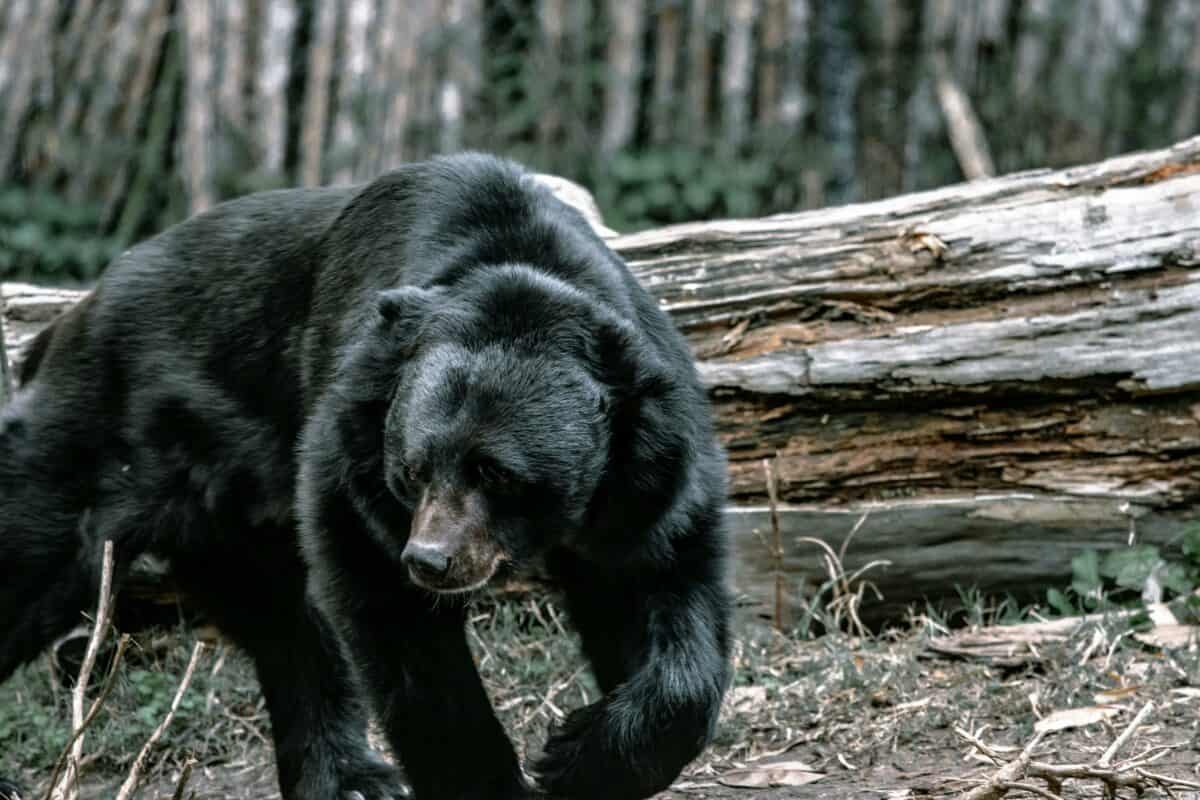
No human can bear the pungent smell of trash. However, bears can smell the odor of food, even in the most stinky garbage cans. They are among few animals with an exceptionally excellent smell, allowing them to detect food from miles away! Making unsecured garbage cans, unsurprisingly, one of the most common reasons for bears to trespass into your backyard.
So, the easiest way to protect your yard from bears is to always leave your household trash in sight. Also, try to make it inaccessible by keeping your garbage in a locked garage or a bear-proof garbage bin.
2. Keep Pet and Bird Food Away from Your Yard
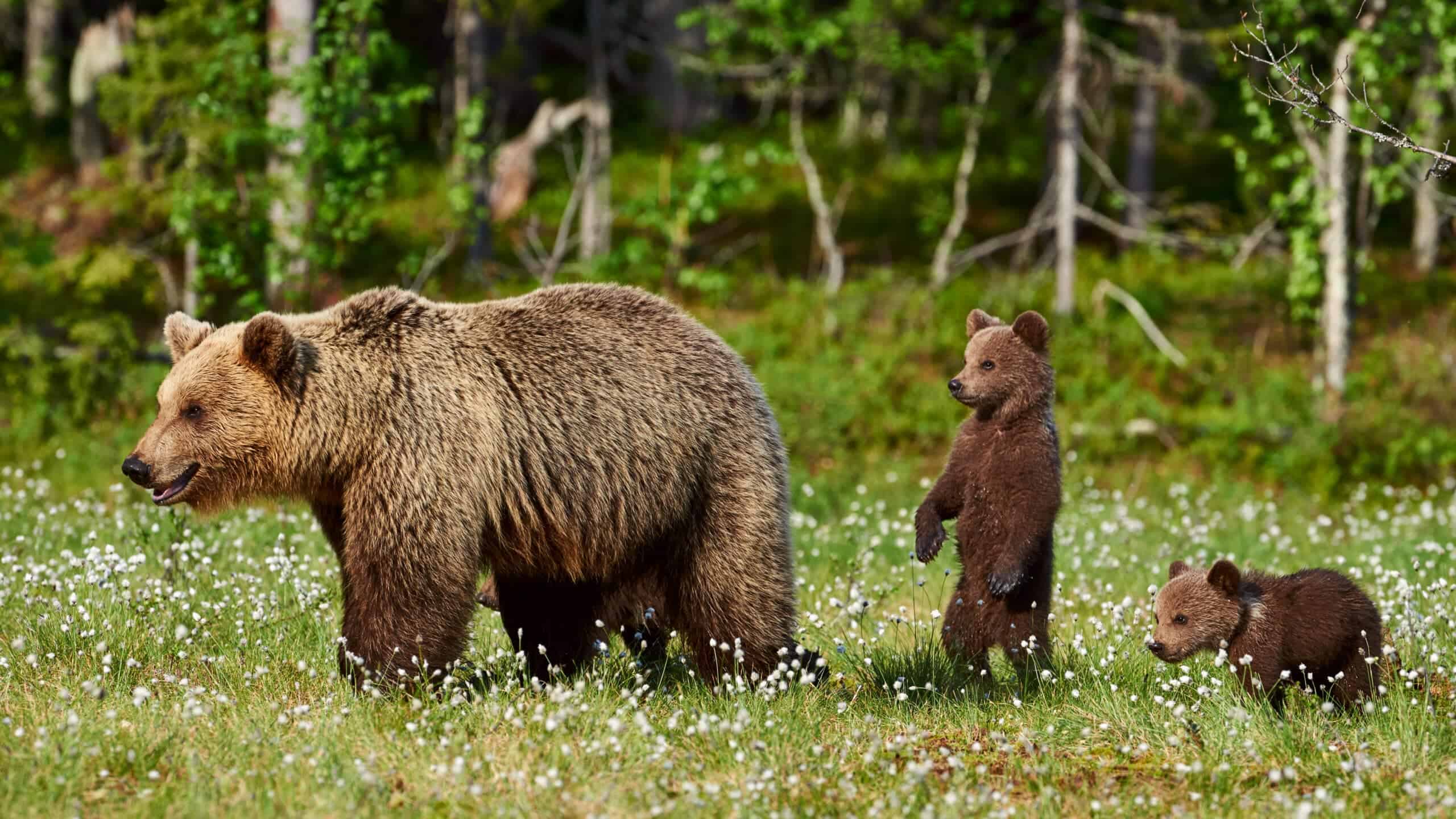
If you have outdoor dogs and cats and you love to feed birds, don’t leave their food outside. Bears are omnivores, meaning that their diet consists of meat and plants. They can be attracted by the pet food you leave outside for your pets and even the seeds you feed the local birds!
To protect your backyard and pets from these giant creatures, consider locking up pet food in your house or garage. In addition, if you love to feed outdoor pets and birds, clean the leftovers. Don’t leave pet and bird food outside unattended.
3. Avoid Planting Fruit Shrubs or Trees
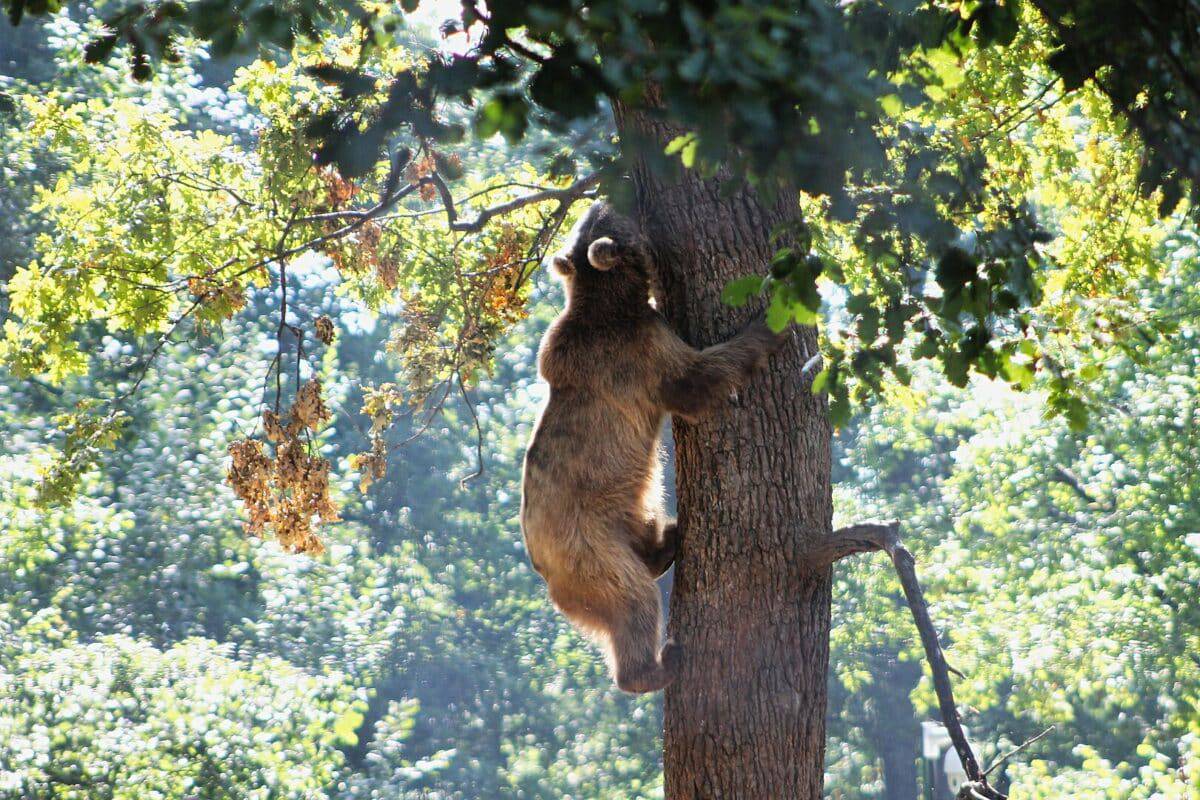
Like bird seeds, fruits can also attract grizzly bears to your backyard. If you reside in a region close to bears’ habitat, it would be better to avoid planting shrubs or trees that produce fruits. Unfortunately, as fun and healthy as it is to have fresh, organic fruits, planting fruit-bearing trees in your backyard can cause attraction for these giant creatures.
Alternatively, if you still want fruit-bearing trees and shrubs, avoid planting them right next to your home. Instead, consider setting them as far from your house as possible.
4. Don’t Compost Smelly Foods or Meat

If you’re a gardener, you will know the benefits of composting. However, the food you use to make compost, particularly strongly scented foods, can attract bears to your property. So, to protect your backyard from these dangerous animals, never place any intensely fragrant food and even meat in the compost pile.
Or, you can use lime in your compost pile to keep the smell down. Bears are also averse to pine and bleach. Hence, sprinkling some pine cleaner or bleach can keep bears at bay.
5. Clean Up After Eating Outdoors
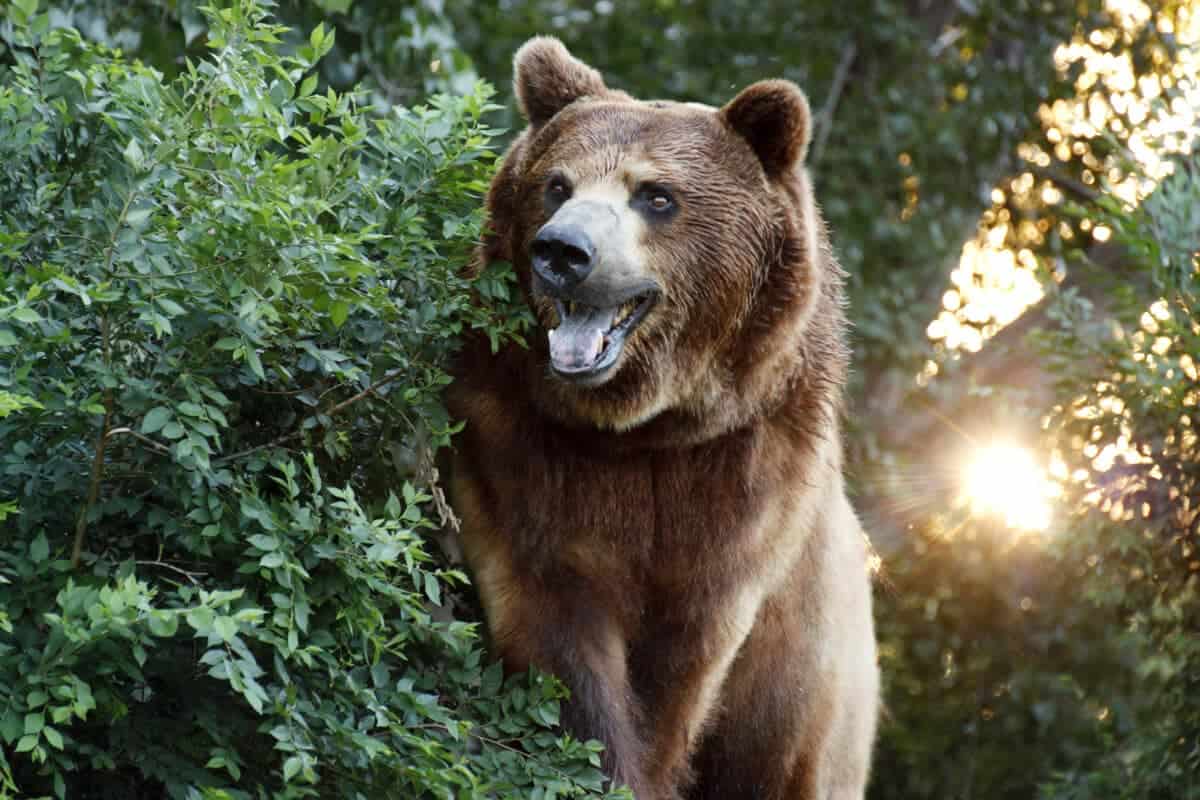
Who does not enjoy a pleasant picnic or outside barbeque from time to time? However, when living in a bear country, you need to be extra cautious. Remember that bears can go to great lengths to feed on the delicious food around your home.
Often, the smell of leftover food brings bears into your backyard. Therefore, to keep these troublesome creatures at bay, you should keep the barbecue, grill, or smoker as clean as possible. All those leftover drippings, meat, fat, and burnt pieces on a barbecue or grill can serve as bait for bears.
6. Cut Down Big Bushes & Keep Your Gates Closed
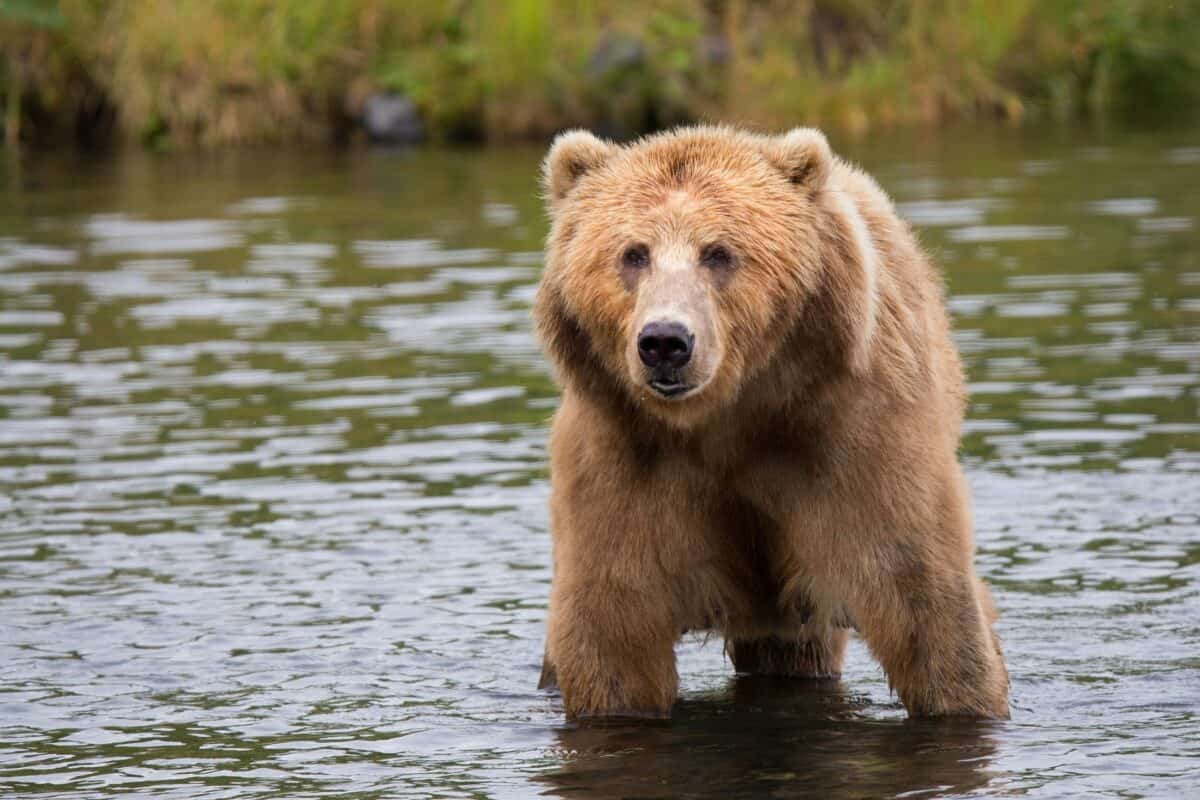
Some experts at national parks recommend people cut down the bushes on their property so that the natural path of these adorable yet dangerous animals can be interrupted. The logic behind this preventive way is to make the home look different from the nearby forest. Big bushes can give bears the idea of your backyard being the same as a forest; thus, they end up trespassing on your property.
Moreover, always close the gate in your backyard. Backyards with open gates make it easy for bears to walk in. Bears are considered lazy creatures, and they will likely not put enough effort into climbing the closed gate unless they are motivated by smelly food.
7. Pungent Scents Can Work
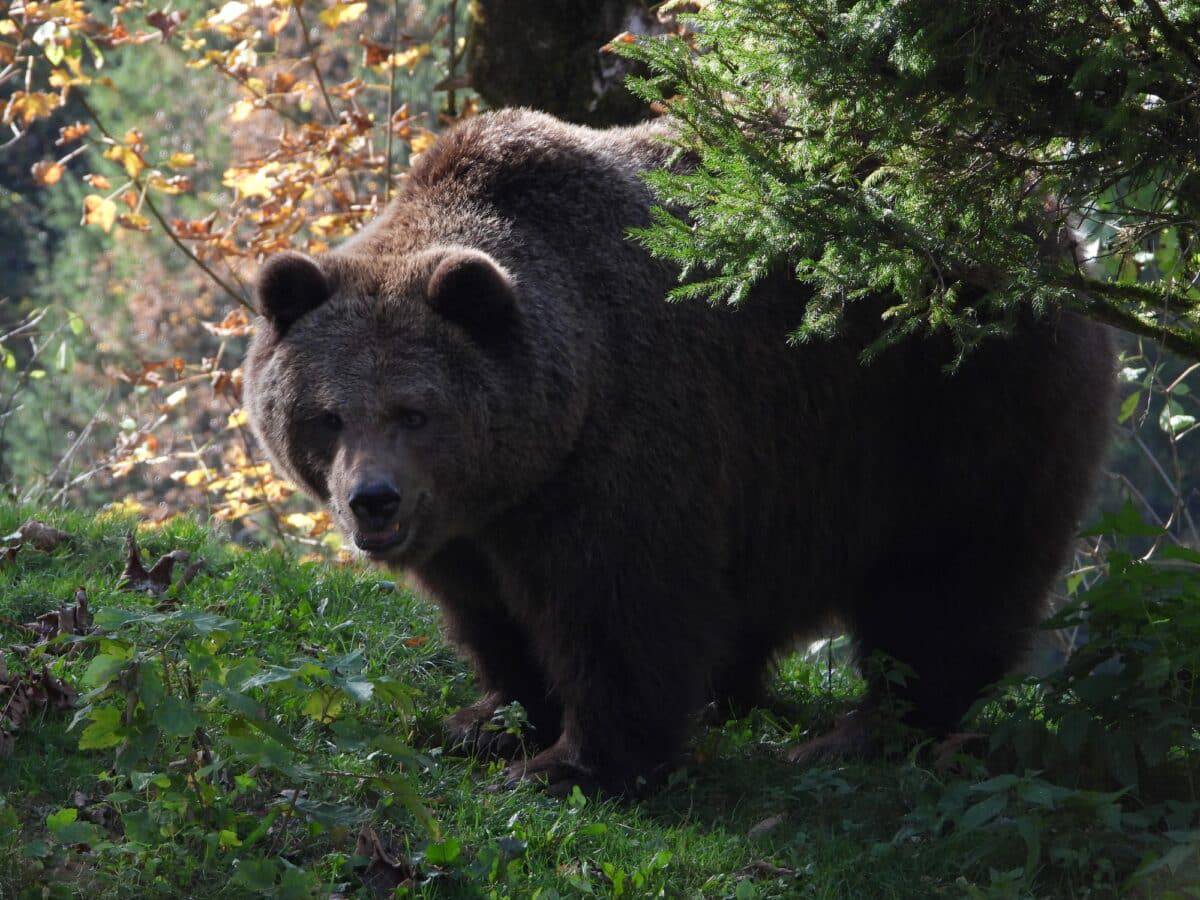
As discussed above, bears have an incredible olfactory sense and can smell food from miles away. Concealing such smells serves as a significant deterrent. However, if it can’t be helped, consider using their exceptional olfactory sense against them.
Some wildlife experts say that pungent, unpleasant smells can help keep bears away at bay. For example, bears hate the smell of bleach much more than humans because of their highly sensitive noses. Therefore, you can spray bleach or ammonia around trash areas or the backyard to protect your property from bears.
8. Add Deterrents to Your Home
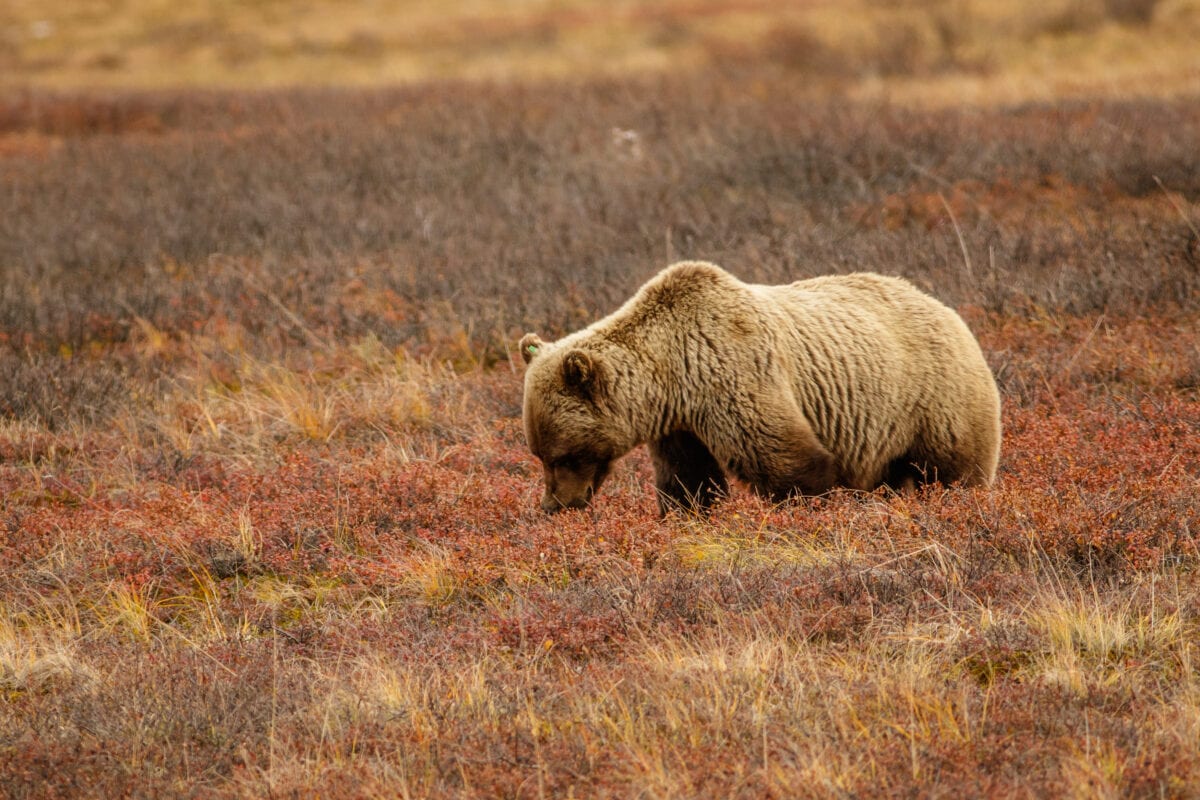
Now that bears are fluffy and look cute, many people avoid using deterrents that are too harsh. However, if these adorable yet dangerous animals frequently attack your backyard, you should use the following deterrents:
- Using flashlights and noise deterrents is ideal for homeowners who intend to avoid deploying harsher ways to keep bears away. However, wildlife experts say that most animals will eventually learn that flashlights and noise are just used to keep them away from the property. Thus, they will ignore these deterrents and trespass in your backyard.
- Another less harsh deterrent that can work wonders is using unwelcome mats. These mats have plywood and nails that can cause pain, but no lasting damage, to the bears trying to enter your backyard.
- If legal in your area, you can even set up an electric fence around your backyard to protect your garden, pets, chickens, pens, and fruit trees from grizzly bears.
- Lastly, you can install motion-activated water spraying systems specially made for animals in your backyard. They can potentially help scare off bears from your property.
Final Say on Keeping Bears Out of Your Backyard
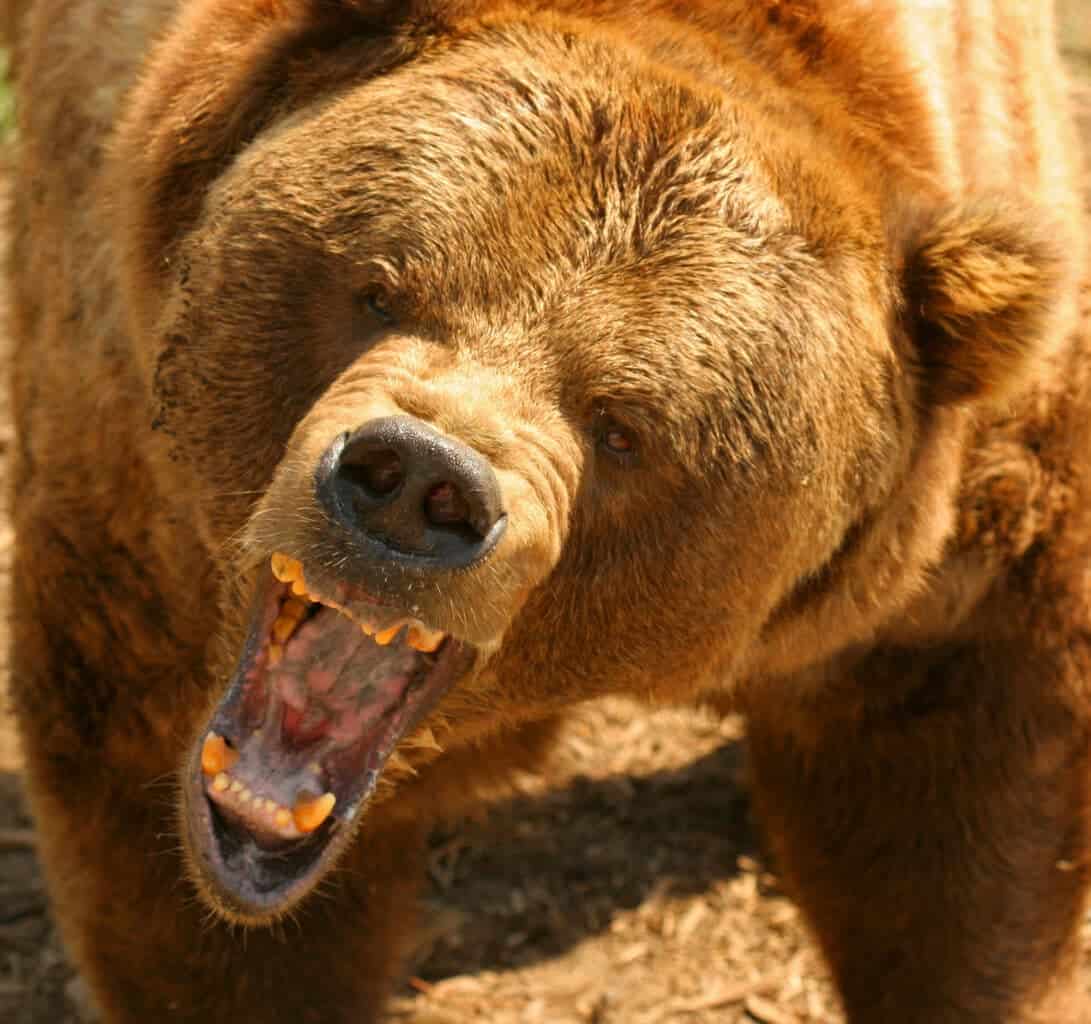
If you live in a bear country, like America, the chances are you might encounter a bear at your home. Sure, bears are fluffy and might look cute, but you will want to appreciate their charm certainly from a very safe distance. These large creatures can be dangerous and cause a stir in your backyard. So, seeing a bear in your backyard or somewhere close to your home is something you will want to avoid. Following the above-listed ways is your best bet to keep grizzly bears out of your backyard.
If you enjoyed learning more about how to keep bears from your backyard, you might enjoy these articles too:
Join our Forum for free today!

- Surprise Hippo Attack on Three Lions - July 21, 2024
- USA’s Best Wildlife Conservation Success Stories - July 14, 2024
- The Incredible Bird with Sunflower Eyes - July 13, 2024

